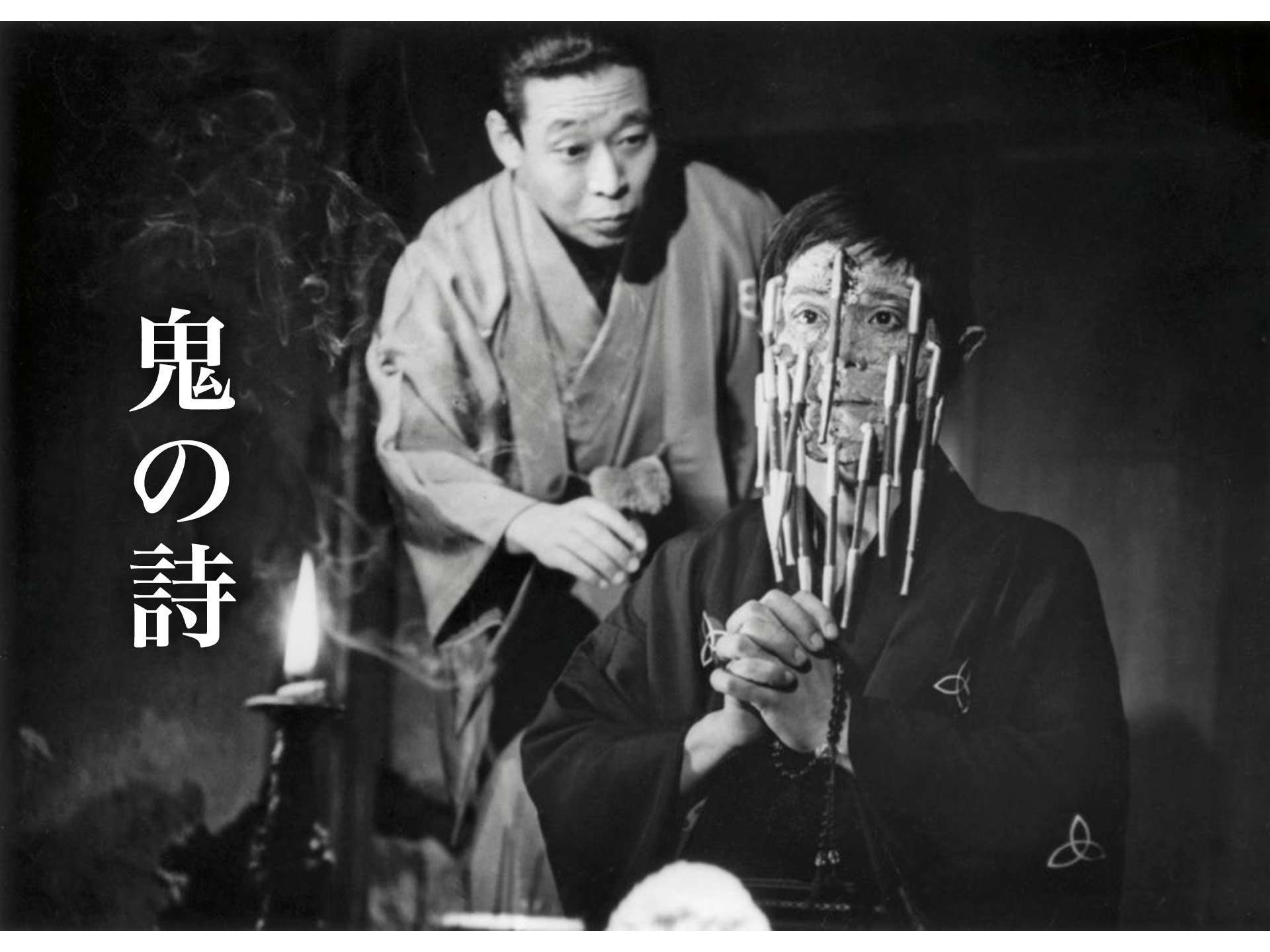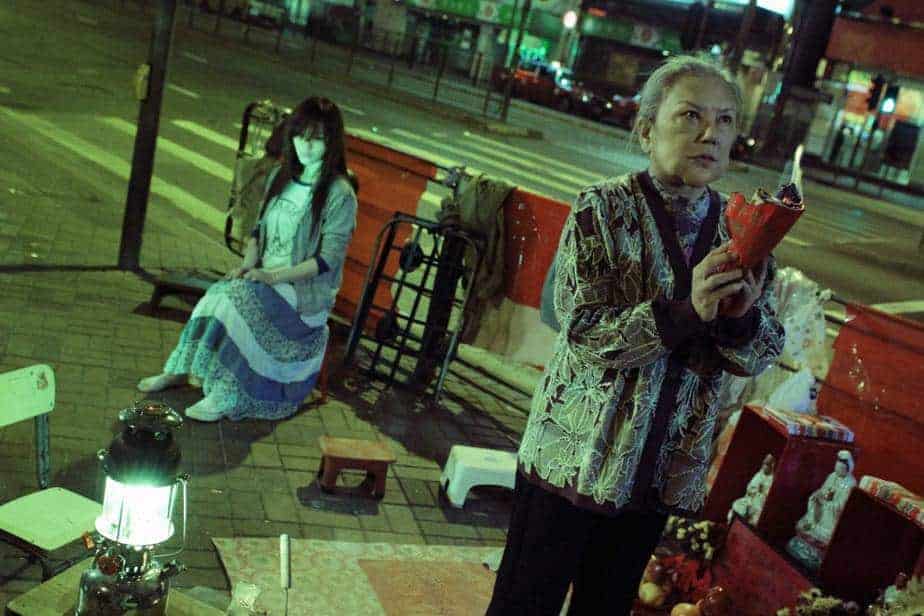Garnering the FIPRESCI Prize from the Karlovy Vary International Film Festival and National award of India for Best Director, Screenplay, and Audiography, Adoor Gopalakrishnan's “Monologue” was one of the best films ever to come from the Malayalam film industry.
“Monologue”, tells the story of Ajayan, an orphan boy who is brought up by a doctor from the hospital where he's born. Ajayan tells his life story, how as a brilliant kid, he was singled out in every aspect in school and thus getting alienated from his peers. He grows up with his foster brother Balu who's already a grown up in the former's childhood. As Ajayan grows up, his brilliance goes along with his social detachment and lack of ambition. After Balan's marriage to Suma, Ajayan starts getting attracted to her which fills him with guilt and internal conflicts that lead him to leave the house which ends in a possible disaster.

At this half point of the film, Ajayan stops narrating and starts again from the beginning. This time we see how terrifying and traumatizing his childhood was when he was only looking after by three servants in the house while the doctor is in the far away hospital and Balan is also studying far away. The three servants who never seem to be doing their actual jobs act in bizarre ways that possibly scars Ajayan's mind. Eventually, Ajayan grows up and enters college, where he starts a relationship with Nalini, who he starts meeting at the bus stop. Nalini looks exactly like Suma from Ajayan's previous story. As their relationship moves forward the convergence of both stories becomes apparent.
“Monologue” is a film about perceptions or specifically the duality of perceptions. From Adoor's own words Ajayan is both introvert and extrovert at the same time. Duality plays a key role in the film, as a media film itself is dual in nature. We know what we see is fiction, but it's by convincing the viewers into believing in the film it succeeds. The film shows us two stories, both narrated by Ajayan like a monologue. After the first story, there seems to be something missing and the second is told like telling the odd number of events first and then the even number of events. But there still seem to be some parts which happened outside the frame. The Malayalam title “Anantaram” (translation: Thereafter) suggests either about the events being consequences or about the after effects.

Throughout the film, there are hints about the parentage of Ajayan. As a hospital where possibly a lot of kids end up as orphans, why was Ajayan taken by the doctor? Why wasn't Ajayan informed of the death of the doctor while he was in college? Why a Yogini Amma (A holy woman) whose Ashram was near the hospital visited Ajayan and cried while he was bedridden with fever? These questions, provide some insight into why Ajayan became an orphan.

In the first half, Ajayan portrays himself as a brilliant kid who, despite all of his circumstances turns out exceptional. But as the story progresses, his confidence slowly diminishes mainly through his attractions towards his sister in law Suma. Then in the second half, he talks more about his dark past and the atrocities he had to endure. The relationship with Nalini and his childhood traumas serve as a defending point for his actions.
Ajayan is always shown as talented but ambitionless whereas Balan is hard working towards his goals. Ajayan has great respect for Balan in a way that he sees Balan as someone who could get everything from life that he won't get, from parents to career to the girl. Mammootty, who portrayed Balan was an actor at that point of time in the industry, who had done a range of hero characters such that, Balan who's like a role-model or even alter ego for Ajayan, was perfectly chosen for him.
Ajayan's relationship with Nalini is shown in a particular way that viewers get confused if Nalini is real or a fantasy. Do Nalini and Suma look the same because it's just a figment of Ajayan's imagination? Are really Nalini and Suma one and the same person? Through the second story, Adoor shows us that Ajayan is an unreliable narrator. Many parts of his childhood events and his meetings with Nalini are part of his imagination, but viewers never know how much of it. Shobana played Suma and Nalini gracefully, both being a passive character and a character out of a fantasy.
In his first film as a child actor Sudheesh mesmerizingly portrayed young Ajayan as both as a brilliant boy in the first half and a boy who goes through a lot of atrocities in the second half. The confused youth of Ajayan was portrayed brilliantly by Ashokan. Through many hints like that of the textbook in Ajayan's room, it is made evident that Ajayan is Schizophrenic. For both Sudheesh and Ashokan, the Schizophrenic Ajayan stays as their best performance even now.

Mankada Ravi Varma's cinematography, sets the mood, according to Ajayan's views. The lighting of the film is different as the story take turns into different experiences of Ajayan like the change of the brilliant boy's story to the confused youth and the encounters with Nalini. But it is most evident in the scenes of Ajayan's childhood with the servants, which use some brilliant techniques for conveying the situation and its effect. The atmospheric music by M.B. Sreenivasan elevates the impact of the scenes.
Adoor Gopalakrishnan's magnum opus about the duality of perceptions is also a thought provoking drama that emphasizes the importance of relationships that shapes the identity of a person.















